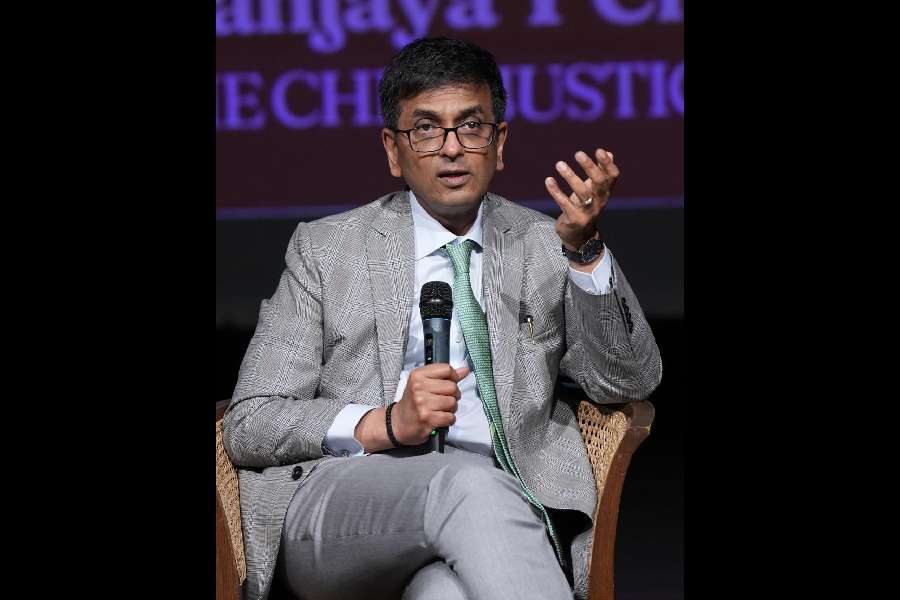Chief Justice of India D.Y. Chandrachud on Sunday said trial judges prefer playing safe by not granting bail on important issues of crime as such relief is looked at with suspicion.
Replying to a question at the end of his keynote address at the 11th Annual Conference of the Berkeley Centre for Comparative Equality and Antidiscrimination Law held at the National Law School of India University here, the CJI underlined the need for a “sense of robust common sense” to look at the nitty-gritty of each case.
“People who should be getting bail in the trial courts and not getting it there, as a result of which, they have to invariably move the high courts. People who should be getting bail in the high courts will not necessarily get it, as a result of which, they have to move to the Supreme Court. This delay compounds the problem of those who are facing arbitrary arrests,” Justice Chandrachud said.
Replying to a question on arbitrary arrests and public authorities acting in a politically motivated manner by detaining activists, academics, journalists and even politicians, including chief ministers of Opposition parties, Justice Chandrachud said: “I think it’s important that we learn to trust people who may be in a hierarchical legal system, like much below, which are the trial courts. We have to encourage trial courts to be more receptive to the need for accommodating concerns of people who are seeking liberty.”
“Unfortunately, the problem today is this, that we look at any grant of relief by trial judges with a degree of suspicion. That means that the trial judges increasingly are playing it safe, not granting bail on important issues of serious crimes,” he explained.
“You (judges) have to have a sense of robust common sense. Now, unless we, therefore, separate the grains from the chaff in criminal jurisprudence, it’s very unlikely that we will have just solutions and to allow for decision-makers to separate the grain from the chaff, it’s important that we also place a great deal of trust,” Justice Chandrachud noted.
In his address based on the topic “Is there hope for equality law”, Justice Chandrachud said: “We should seek a world without discrimination and prejudice not only because it is net beneficial for any society but because it is the right thing to do.”
“There is a moral imperative in this simple but radical idea that all persons are equal and deserve equal opportunities and life chances. We must seek equality to meet our moral obligation and imagine an egalitarian world,” he added.
The CJI described equality as “a guarantee which requires us to pay a constant premium”.
“We pay this premium by guarding even the slightest erosion of human dignity and equality. After all, the equalities we cherish today were not achieved easily,” he said.
“The sobering reminder of people who laid down their lives for freedom made me think of how much we take our own freedoms for granted. It made me reflect on how the basic virtues of our society are not guaranteed — among them are the principles of freedom, equality and democracy.”
He highlighted how conversations around anti-discrimination and equality have been gaining currency around the world. “People, especially the younger generation, are challenging our assumptions and daring us to imagine a more perfect world.”










